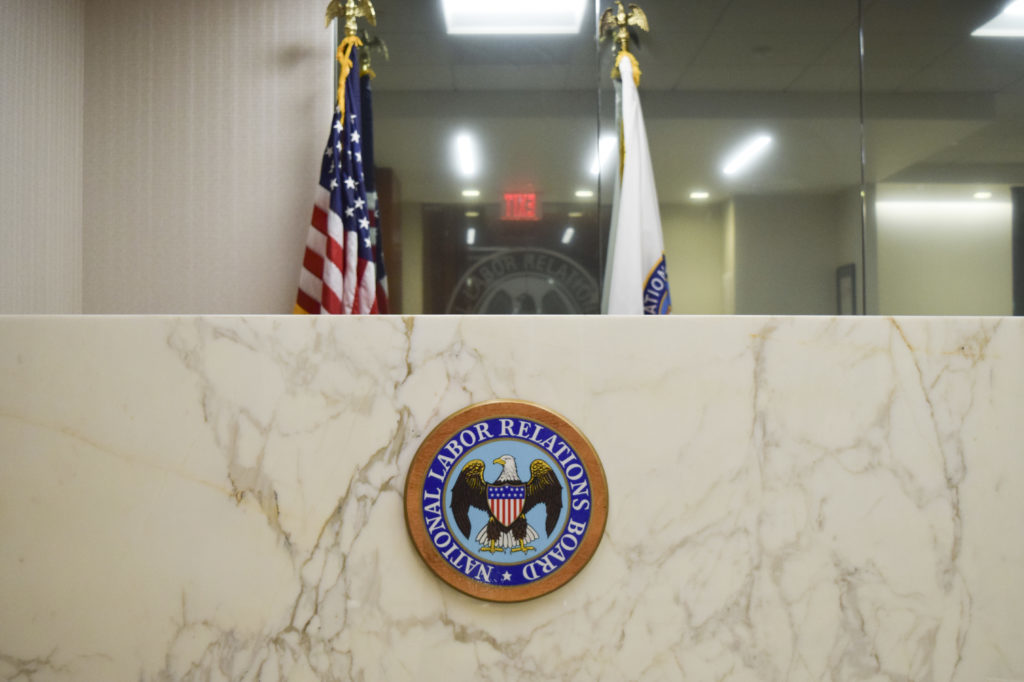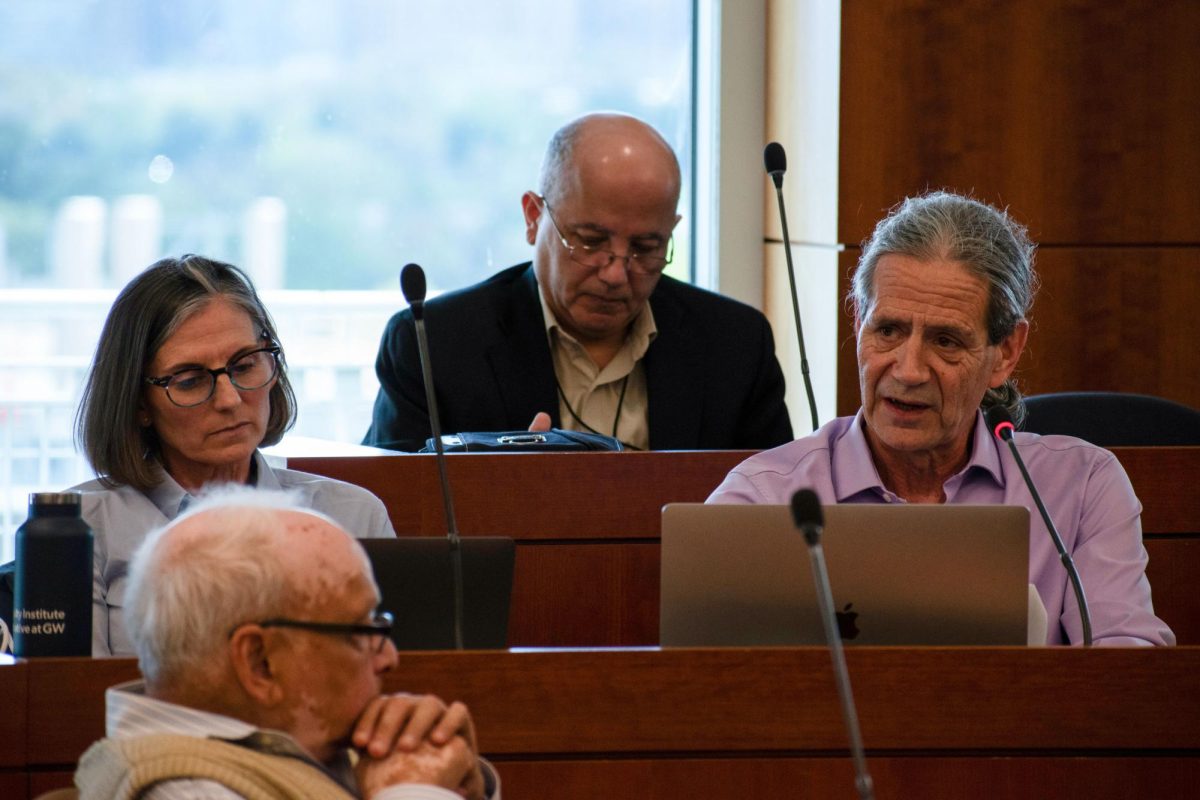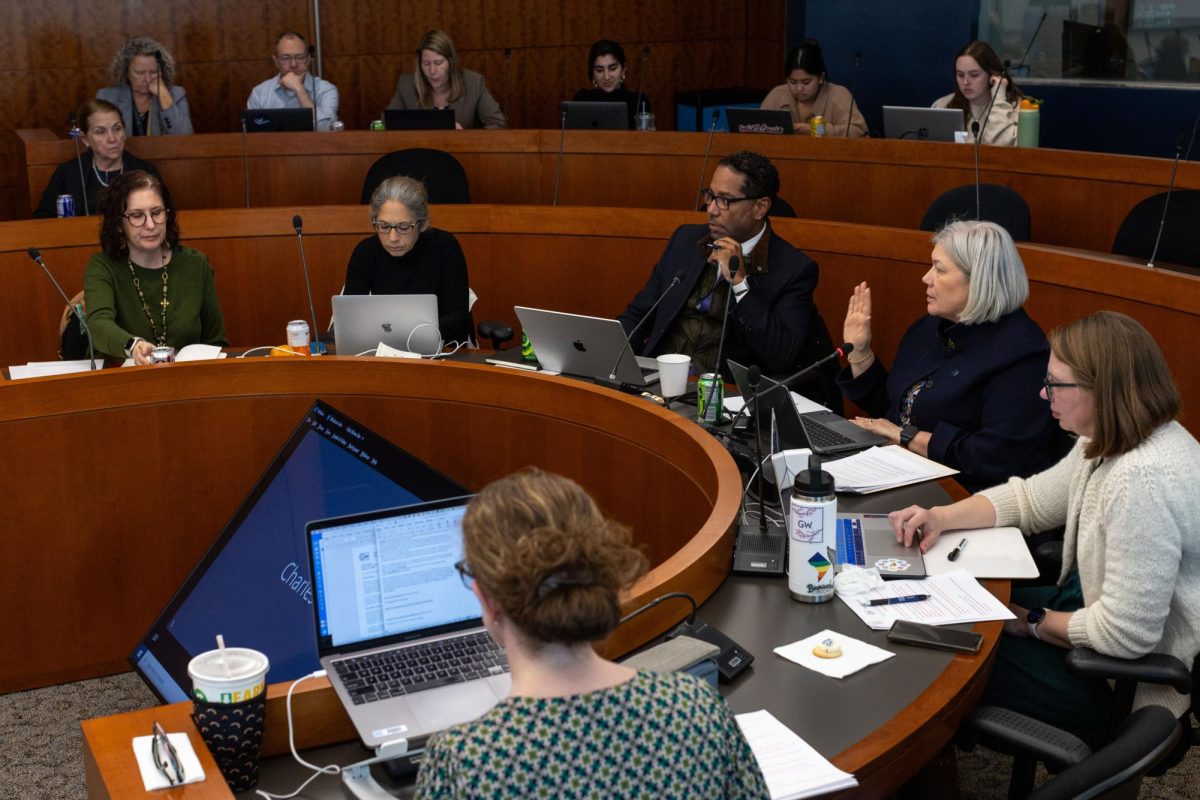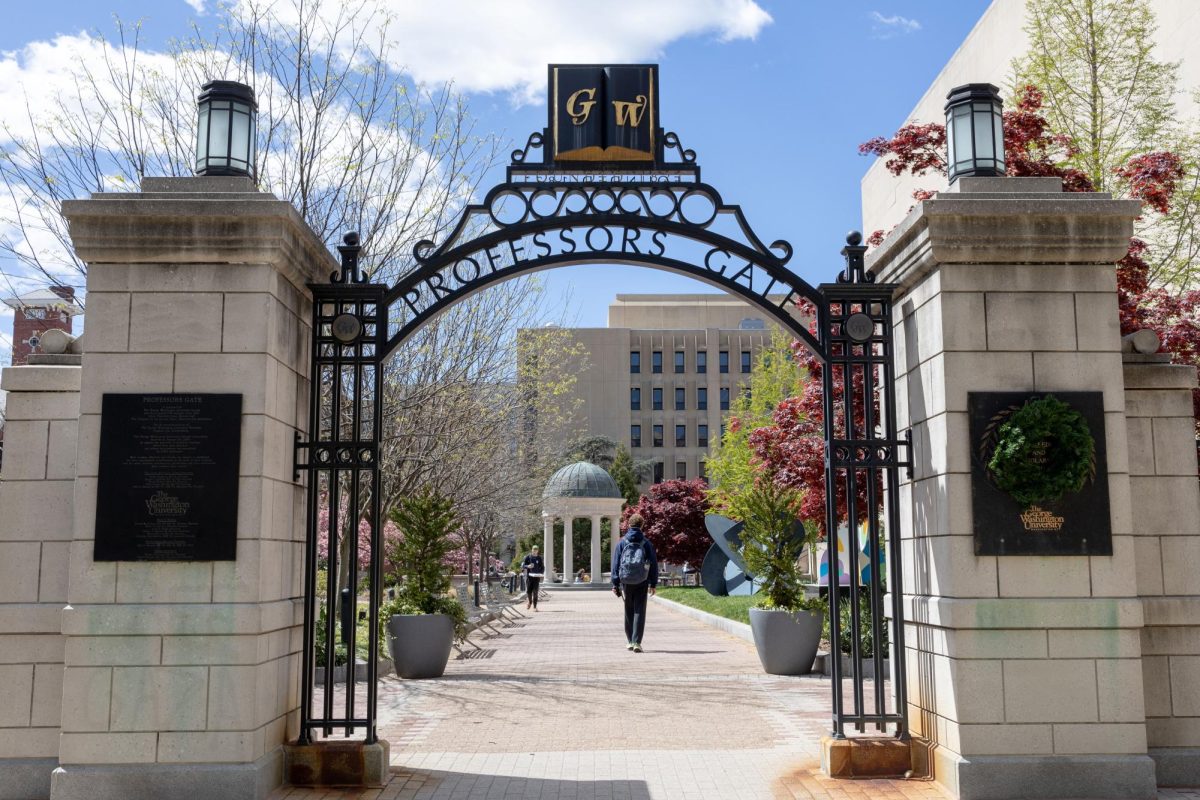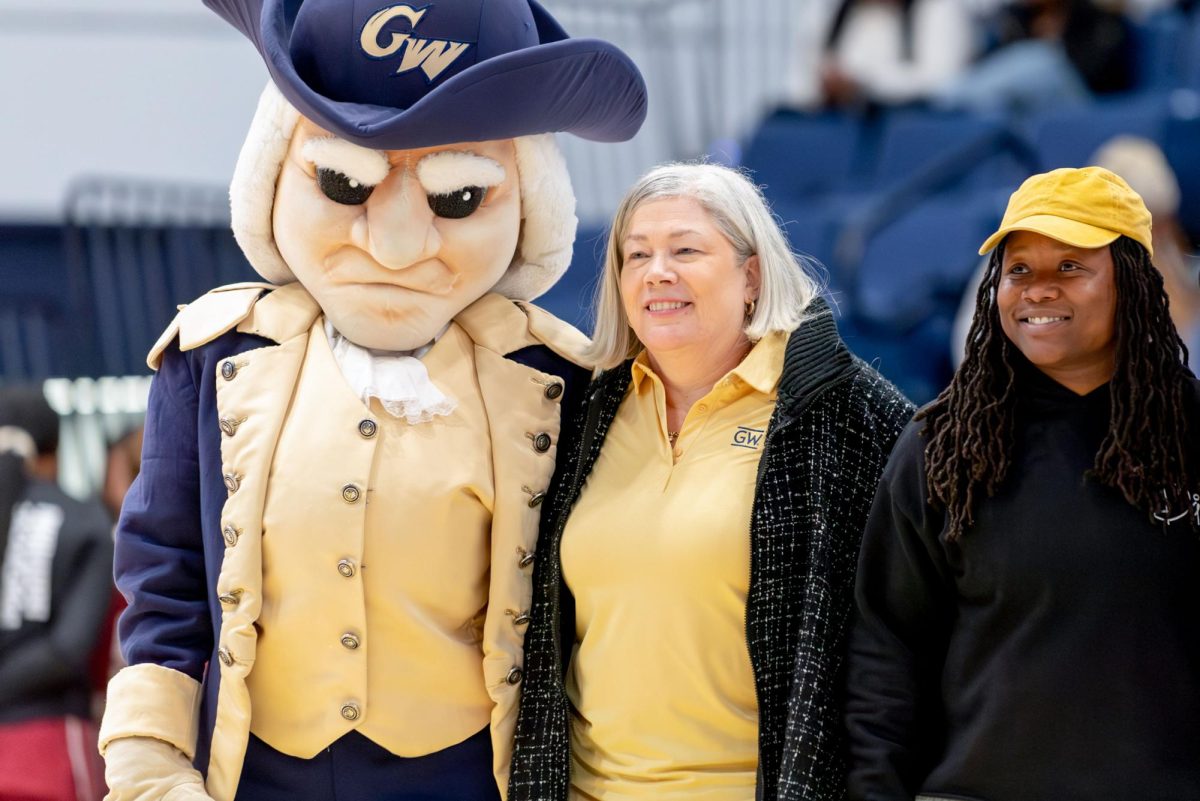Graduate students said a proposed federal rule to bar students from unionizing could make it more difficult for them to improve their working conditions.
Under the rule, which National Labor Relations Board members proposed last month, the federal government will classify any form of service for compensation carried out by students at universities as educational in nature, not professional. Graduate students involved in unionization efforts said the rule would be a setback to a yearslong effort students have pushed for.
The rule would reverse a 2016 NLRB ruling that determined student teaching assistants at private colleges are statutory employees, independent workers who are employees under labor law and have the right to unionize under the National Labor Relations Act.
University spokeswoman Crystal Nosal said the University has not taken a position on the proposal because there is no push to unionize under the NLRA at GW.
“There is no current effort by students to organize under the provisions outlined in the National Labor Relations Act, so there is no current impact on graduate students at GW,” she said in an email.
Officials announced their opposition to graduate student unionization in March 2018, saying that graduate students’ relationship with the University is educational, not professional. The declaration came after students started a movement to secure collective bargaining rights in fall of 2017.
“I believe it would inevitably limit the ability of our schools and faculty to creatively support our students and would disrupt the mentoring opportunities that are so important to building world-class graduate educational programs,” Provost Forrest Maltzman said of graduate student unionization in a release last year.
Leaders of Graduate Students United, a student group advocating for collective bargaining rights for teaching assistants, paused efforts to unionize last year after officials repeatedly refused to recognize them as student workers. The group said it would focus on advocating for individual issues like improved health care.
Andreas Meyris, a sixth-year doctoral student studying history, said graduate student workers have expected change “for years” since President Donald Trump entered office and appointed several anti-union officials to agencies like the NLRB. He said graduate students should be able to vote among themselves about the decision to unionize instead of a federal agency making policy for students across the country.
“We would love a neutral third-party election which doesn’t go through the NLRB because, at this point, we are tired of being a political football that constantly changes sides,” he said.
Meyris said graduate students struggle to advocate for better pay and increased benefits without a union as they try to meet the high costs of living in or near the District – “one of the most expensive cities in the country” – while attending GW.
Unionization would allow for increased bargaining power to improve working conditions and wages for student workers at the University, Meyris said.
“We often spend more than half of our money on rent,” he said. “We also have to live far away typically, which means lots of money spent on commuting. We aren’t guaranteed health care either, which is another added expense to the list.”
Meyris said student unionization leaders are encouraging graduate students to voice their thoughts on why the ruling is not “fair” by writing emails and letters to NLRB members. Members of the public have until late November to comment on the rule before the NLRB submits a final version that will take effect a few weeks later, according to the Federal Register’s website.
“I hope that the NLRB will see that this choice will have lasting impacts on us,” Meyris said. “There is no question about the fact that we’re workers. We provide labor for the University, and we’re paid for it.”
Vyta Baselice, a fourth-year doctoral student studying American studies, said the proposed NLRB rule is “discouraging” but will not stop graduate students across the country from seeking recognition as employees at their institutions.
“The rule doesn’t really change the fact that graduate student workers remain workers,” Baselice said. “They continue to work on campus, and just because they deny our ability to unionize this year or last year or next year or five years later does not mean that future graduate students are not going to be concerned about these issues.”
Baselice said the University should acknowledge its graduate teaching assistants as employees because they often serve as the “main contact” between undergraduate students and their professors in addition to grading assignments and running class discussions.
“I think there is just a very different level of responsibility that students undertake as teaching assistants, and that labor is not only time consuming but also emotionally consuming, so the weight of that work, I think, needs to be recognized,” she said.
Baselice said a graduate student union could help mediate disputes between TAs and faculty members. She added that a union could provide a formalized channel for TAs to provide feedback to administrators about graduate students’ concerns broadly.
“There are very basic needs that students would like to go into more direct conversation with,” she said. “On top of all that, I think just having a more direct outlet for student concerns would be really, really meaningful.”


